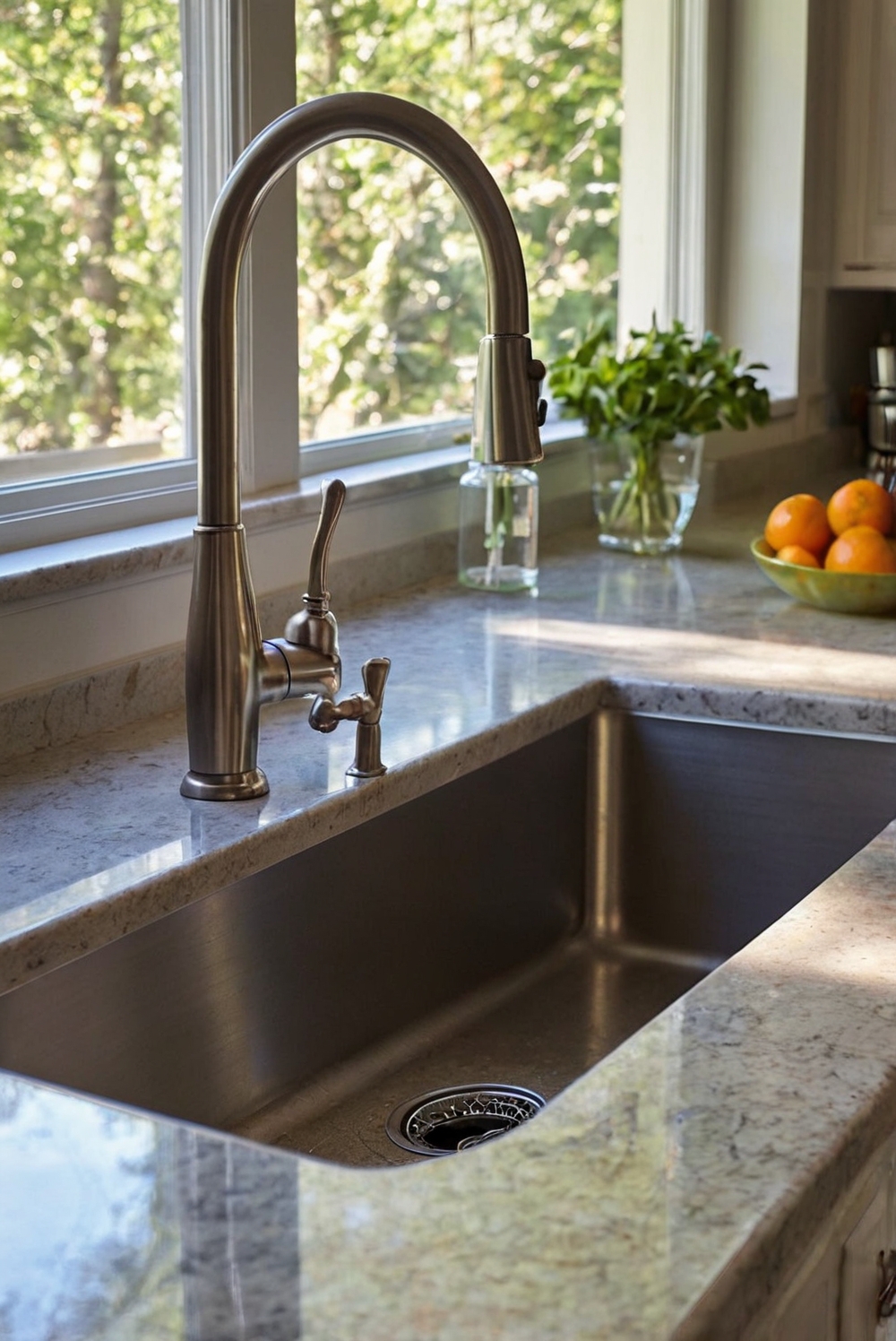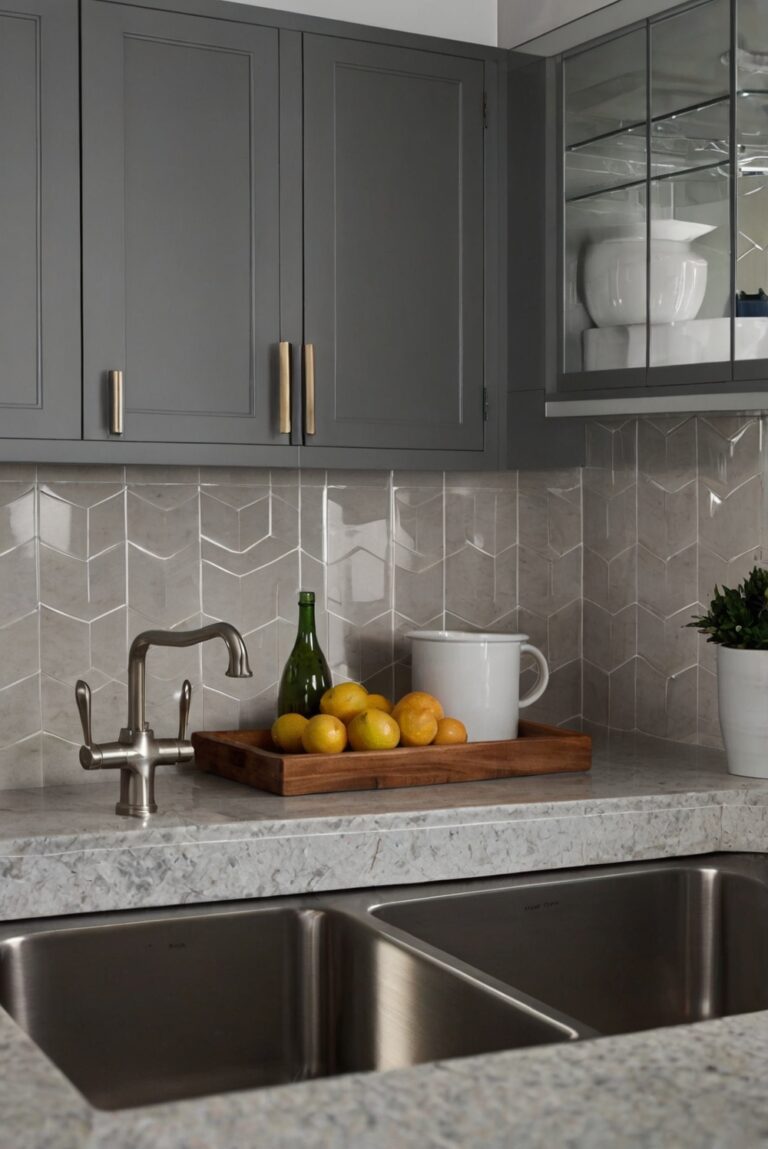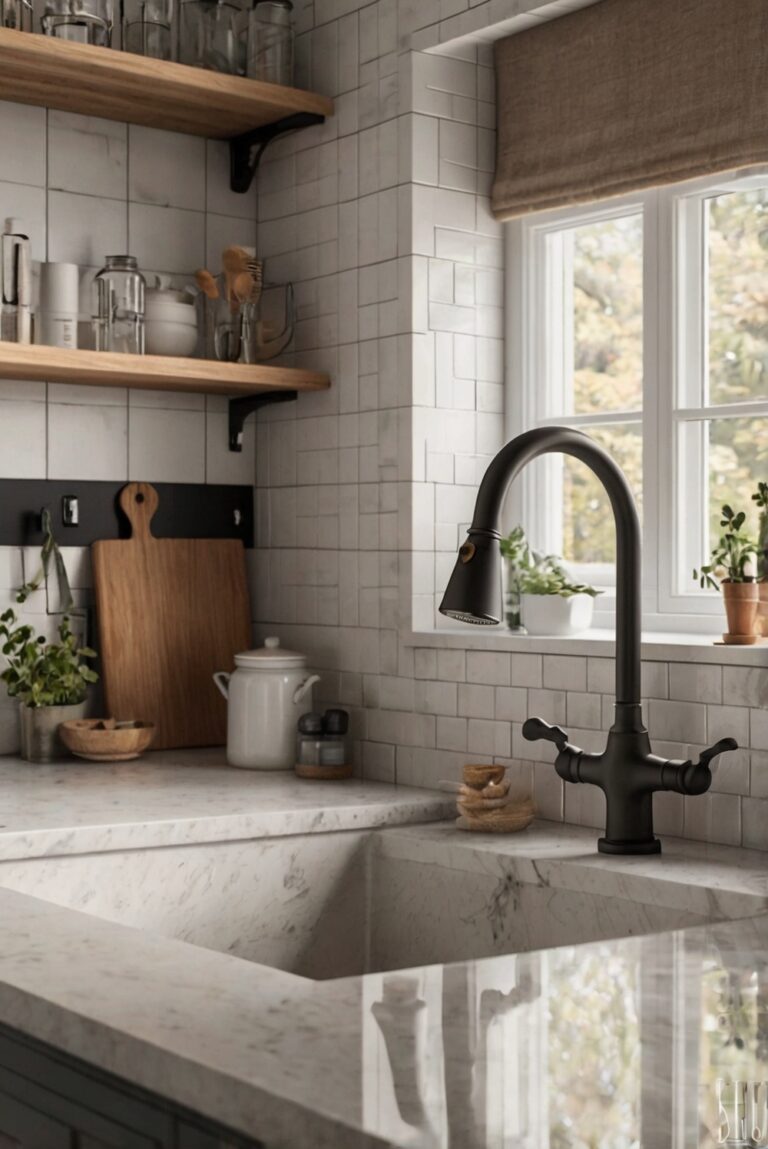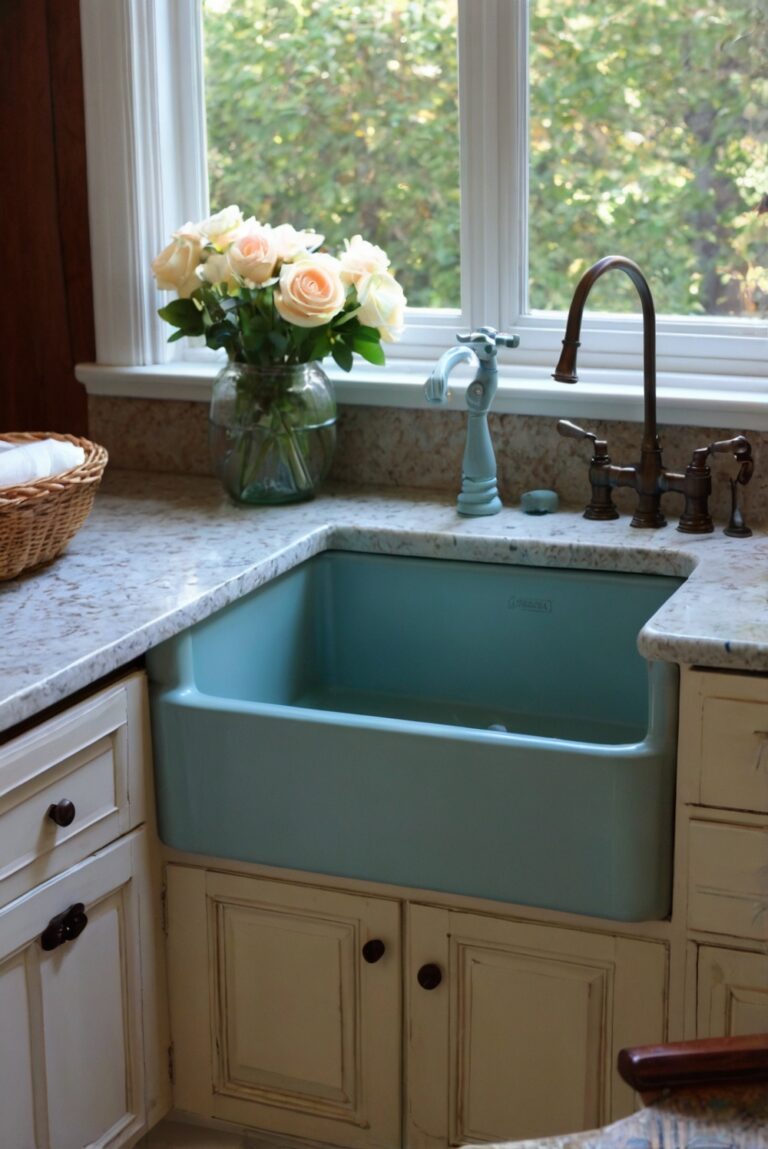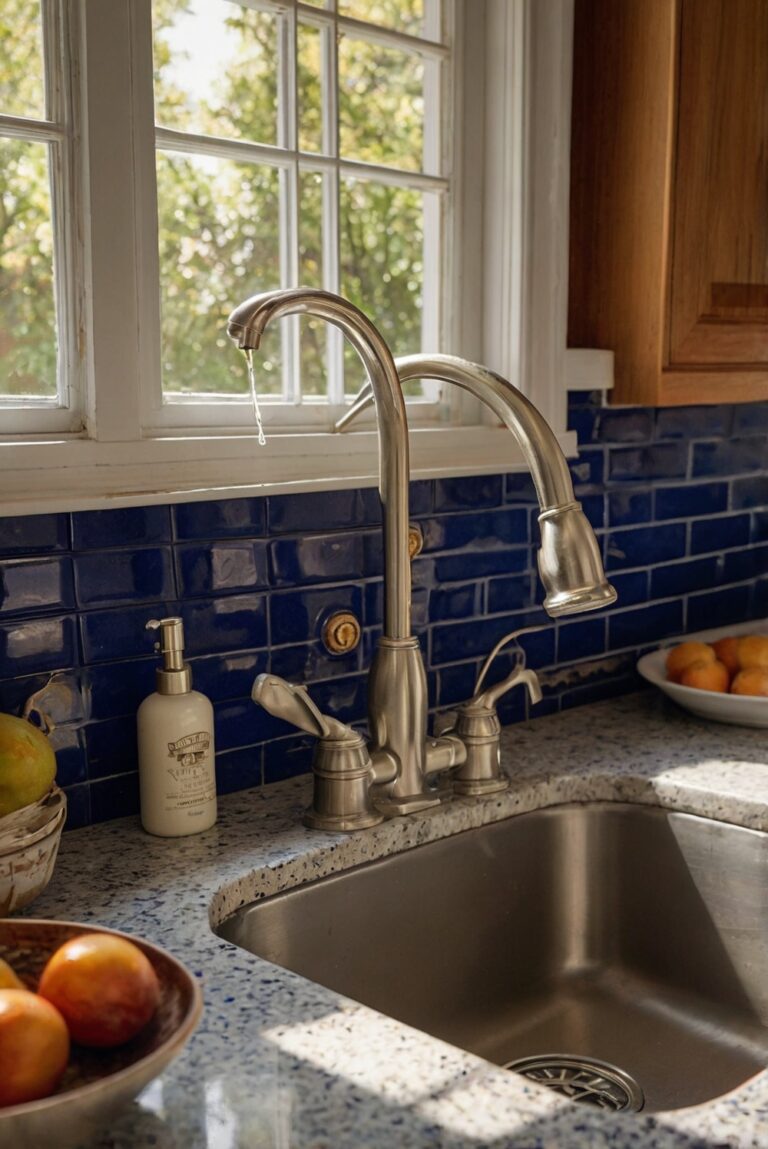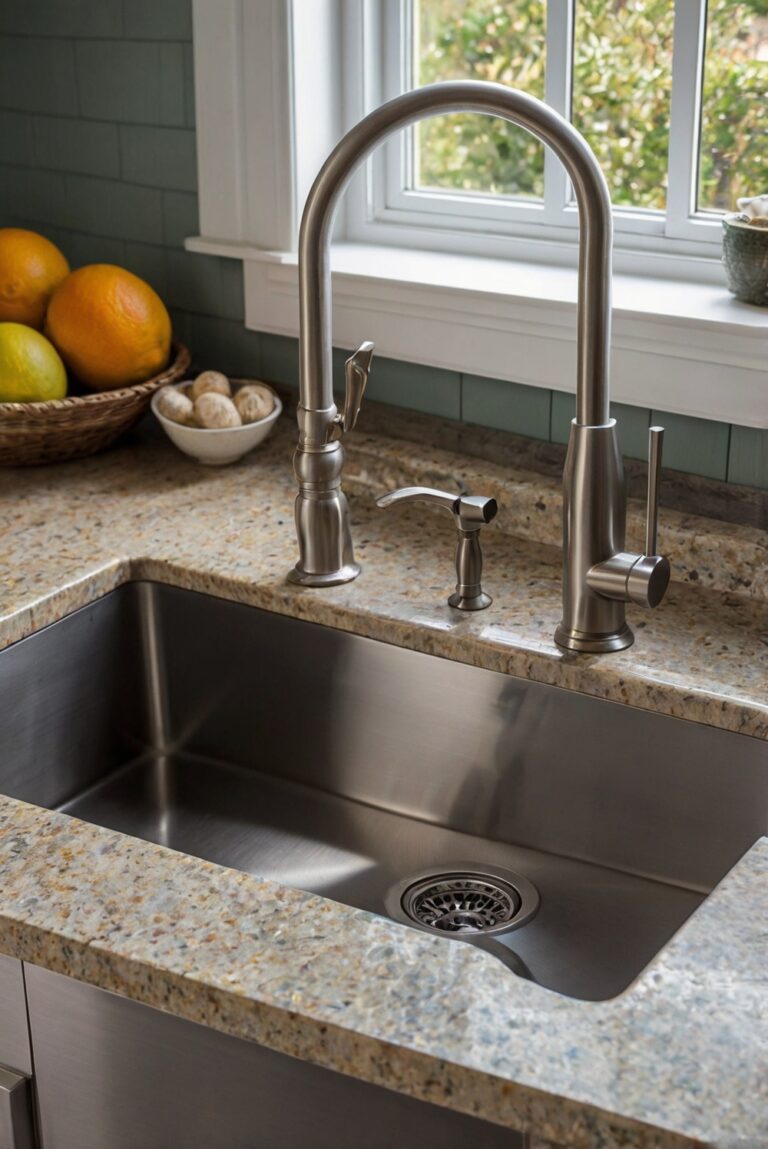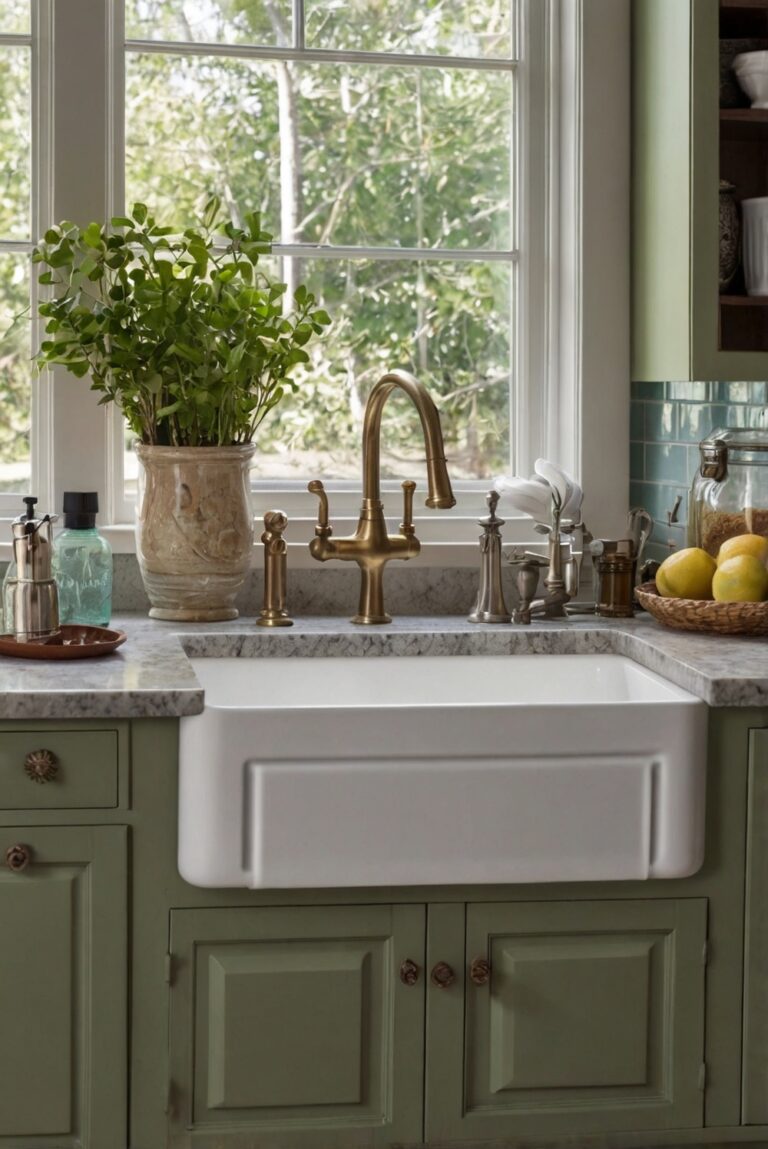Discover the secrets to choosing the ideal material for your kitchen sink in this daily interior designer routine for effective decor selection.
**How to Select the Perfect Material for Your Kitchen Sink?**
**Answer**:
To select the perfect material for your kitchen sink, consider factors such as durability, ease of maintenance, and style. Stainless steel sinks are a popular choice for their durability and affordability. Granite composite sinks offer a sleek look and are resistant to scratches and stains. Cast iron sinks are sturdy but can be prone to chipping. Porcelain sinks are stylish but require more maintenance. When choosing a sink material, think about your kitchen’s overall design and color scheme. Match the sink material with your countertops for a cohesive look. Properly assess your kitchen’s needs before making a final decision.
**Benefits**:
– Durability and affordability
– Resistant to scratches and stains
– Stylish options available
– Coordination with countertops
– Consideration of kitchen needs
**Risks**:
– Chipping for cast iron sinks
– Maintenance required for porcelain sinks
**Steps to Take**:
1. Evaluate durability and maintenance needs
2. Consider design and color coordination
3. Research various sink materials
4. Compare prices and reviews
**Why to Do**:
Selecting the right material for your kitchen sink ensures a functional and visually appealing space, enhancing the overall home interior design.
**How to Be Organized**:
Create a checklist of factors to consider, such as durability, maintenance, and style, to stay organized when selecting the perfect sink material.
**Countries**:
United States
Canada
United Kingdom
Australia
When selecting a material for your kitchen sink, it is important to consider various factors to ensure you choose the perfect option for your needs.
1. Consider Durability:
When choosing a material for your kitchen sink, durability should be a key consideration. Look for materials that are resistant to scratches, dents, and stains. Stainless steel sinks are a popular choice due to their durability and resistance to corrosion. Granite composite sinks are also highly durable and can withstand heavy daily use.
2. Think About Style and Design:
The style and design of your kitchen sink can greatly impact the overall aesthetics of your kitchen. Consider the look and feel you want to achieve in your kitchen and choose a material that complements your design. Stainless steel sinks offer a sleek and modern look, while fireclay sinks provide a more traditional and elegant appearance.
3. Evaluate Maintenance Requirements:
Different materials have varying maintenance requirements. Some materials, like stainless steel, are easy to clean and maintain, while others may require more care and attention. Consider how much time and effort you are willing to invest in maintaining your sink and choose a material that aligns with your maintenance preferences.
4. Assess Cost and Budget:
Cost is an important factor to consider when selecting a material for your kitchen sink. Some materials, like stainless steel and acrylic, are more budget-friendly options, while others, like copper and granite composite, may come at a higher price point. Evaluate your budget and choose a material that offers the best balance between cost and quality.
5. Think About Noise Reduction:
The material of your kitchen sink can also impact the amount of noise produced during use. Stainless steel sinks are known to be noisier compared to fireclay or granite composite sinks, which offer better sound insulation. If noise reduction is important to you, consider choosing a sink material that helps minimize sound.
In conclusion, selecting the perfect material for your kitchen sink involves considering factors such as durability, style, maintenance requirements, cost, and noise reduction. By carefully evaluating these aspects and choosing a material that aligns with your preferences and needs, you can ensure that your kitchen sink not only looks great but also functions effectively for years to come. Remember to prioritize quality and functionality when making your decision, and don’t hesitate to seek advice from professionals to help guide you in selecting the best material for your kitchen sink.
1. What are the different materials available for kitchen sinks?
There are various materials to choose from when selecting a kitchen sink, including stainless steel, cast iron, fireclay, composite, and natural stone. Each material has its own benefits and drawbacks. Stainless steel sinks are durable and easy to clean, while cast iron sinks offer a classic look but can be prone to chipping. Fireclay sinks are heat-resistant and have a smooth surface, while composite sinks are resistant to stains and scratches. Natural stone sinks provide a unique and luxurious feel to the kitchen.
2. How do I choose the right material for my kitchen sink?
When choosing the perfect material for your kitchen sink, consider factors such as durability, maintenance, style, and budget. Stainless steel sinks are a popular choice for their durability and affordability. Cast iron sinks offer a traditional look but require more maintenance to prevent chipping. Fireclay sinks are a good option for those looking for a sleek and modern design. Consider your lifestyle and how much time you are willing to spend on maintaining your sink before making a decision.
3. What factors should I consider when selecting a kitchen sink material?
Several factors should be considered when selecting a kitchen sink material, including durability, maintenance, aesthetics, and budget. Stainless steel sinks are a practical choice for busy kitchens as they are durable and easy to clean. Cast iron sinks are known for their classic look but may require more upkeep to prevent damage. Fireclay sinks are a popular choice for their elegant appearance and heat-resistant properties. Consider the overall design of your kitchen and your personal style preferences when choosing a sink material.
4. Are there any specific maintenance requirements for different sink materials?
Each sink material has its own maintenance requirements. Stainless steel sinks are easy to clean but can show water spots and scratches over time. Cast iron sinks need to be properly protected to prevent chipping and rust. Fireclay sinks should be cleaned with mild soap and water to maintain their smooth surface. Composite sinks are resistant to stains but may require periodic sealing. Natural stone sinks should be sealed regularly to prevent staining and etching. Consider the maintenance needs of each material before making your final decision.
5. What are some popular trends in kitchen sink materials?
Currently, stainless steel sinks remain a top choice for their durability and versatility. However, there is a growing trend towards composite sinks, which offer a wide range of colors and styles to complement modern kitchen designs. Fireclay sinks are also gaining popularity for their timeless appeal and heat-resistant properties. Natural stone sinks, such as granite or marble, are preferred for their luxurious look and unique patterns. Consider the latest trends in kitchen sink materials to stay updated with modern design preferences.

